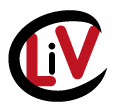The research group Translation and Culture at Ghent University (https://research.flw.ugent.be/en/trace) seeks to recruit a PhD fellow (doctoral candidate) for its project on TRANSLATION AND FRANCOISM (2020-2024).
We offer a 4-year grant (2 + 2), on the condition of a positive evaluation after 2 years. The position is available from 1 May 2020, but the starting date is negotiable up to 1 September 2020 at the very latest.
Summary
Between 1939 and 1975 Francisco Franco’s administration held a tight control over public discourse in Spain. This project studies the role of translation during Francoism. A site of tension and censorship under Franco, translation throws light on cultural struggle and on the values, practices, and institutions that Francoism—or sectors of the regime—defended and opposed in various times and places. The project is currently looking for a research proposal about translation between Spanish and, preferably, (one of) the following languages: French, English, Dutch, German, Norwegian, Danish, or Swedish.
Topics available for research include, but are not limited to:
–a case study on the Francoist reception and translation of a film oeuvre;
–a case study on the Francoist reception and translation of (part of) a literary oeuvre;
–a case study on translation and journalism during Francoism;
–a case study on translation and political discourse during Francoism;
–a study that maps events, networks, and tendencies in one pivotal period of translation censorship (e.g., an important month or year in the Francoist censorship of translated film);
— a study that carries out a longitudinal study of an important agent of translation (e.g., a high-profile translator or an influential Francoist censor of literary or film translations). As a doctoral fellow at Ghent University
you will
– collect and analyze data from relevant archives (especially the Archivo General de la Administración in Alcalá, Madrid);
– present your ongoing research at national and international conferences;
– write a doctoral dissertation within four years;
– prepare individual and joint publications;
– occasionally assist in teaching activities at the department.
Ghent University is a top 100 university and one of the major universities in Belgium. Located in a vibrant historic city, Ghent University is a multilingual working environment and offers great career opportunities.
For more info and application : https://www.ugent.be/en/work/vacancies/scientific/doctoral-fellow-6rws4
